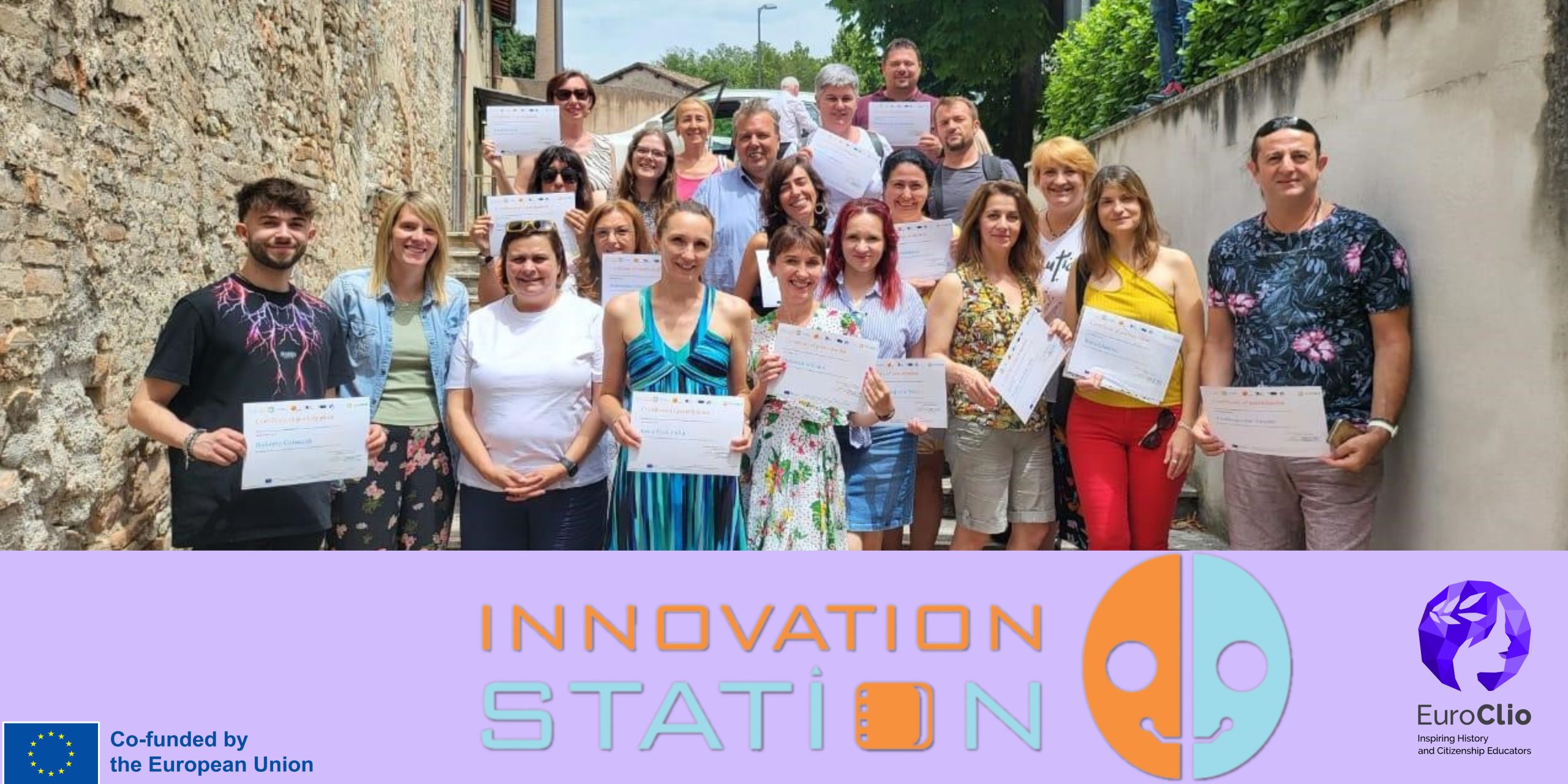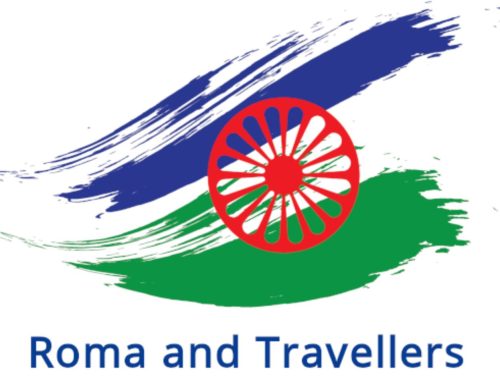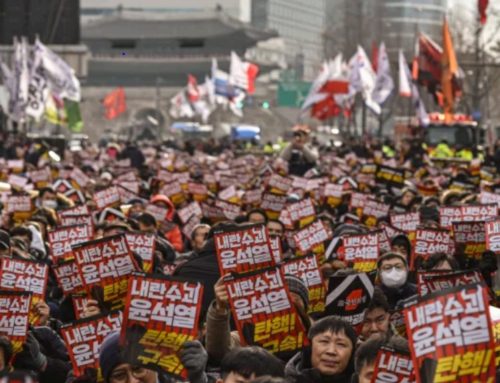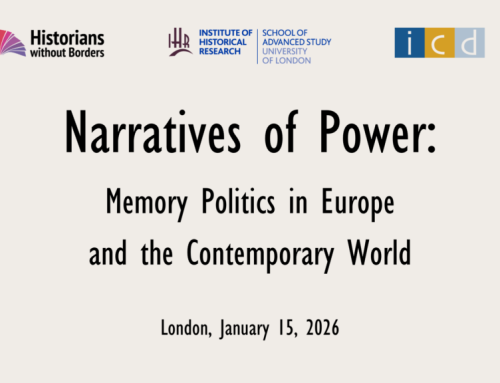I recently had the opportunity to participate in the Innovation Station workshop, which took place in Foligno, Italy, from 4th to 10th July 2023 as part of the Erasmus project. This workshop, organized by the European Grants International Academy (EGInA) and EuroClio in collaboration with the Organising Bureau of European School Student Unions (OBESSU) and the Hellenic Open University, aimed to explore innovative methods in online education and equip teachers with the skills needed to create engaging learning environments.
Alongside 20 teachers from Italy, Greece, Turkey, Bulgaria, Poland, Bosnia, and Portugal, I engaged in a week of immersive learning, where we dived deep into the world of innovative methods and practices in online education. The workshop provided us with a platform to analyze and discuss the guidelines developed as part of the Innovation Station project. This collaborative effort allowed us to share our perspectives and adapt the guidelines to suit our specific teaching contexts.
Dr. Stefania Gargioni and EuroClio Ambassador Ute Ackermann Boeros led the workshop, offering interactive lessons and practical training on online and blended techniques. Through their guidance, we honed our skills in developing engaging lesson plans and aligning our teaching practices with the Innovation Station guidelines. Additionally, we gained valuable insights into European policies on distance learning, enabling us to navigate the educational landscape more effectively.
The workshop fostered an environment of open dialogue and interaction, where participants were encouraged to share experiences, exchange ideas, and collaborate on finding innovative solutions to the challenges faced in online education. This collective exchange of knowledge and diverse perspectives enriched our learning experience and sparked new ideas for enhancing our teaching practices.
An exciting highlight of the workshop was our involvement in the Social Hackathon Umbria 2023 (#SHU2023) as members of the social jury. This Hackathon, organized by EGInA in collaboration with the Crowddreaming Hackademy Lab Foligno 4D (CRHACK LAB F4D), aimed to enhance the digital skills of young individuals and Civil Society Organizations (CSOs) in working towards the Sustainable Development Goals (SDGs) outlined in the United Nations’ 2030 Agenda.
During the intense 48-hour Hackathon, selected teams passionately worked on developing innovative digital solutions. With the guidance of experts, they pitched, prototyped, or created products with the aim of empowering individuals and CSOs to make a positive impact towards achieving the SDGs. It was inspiring to witness the creativity and dedication of the teams as they strived to make a difference.
In addition to the Hackathon, we had the opportunity to participate in a specialized workshop on using stop motion technique in the classroom for digital storytelling. Led by experts in the field, this workshop explored the creative potential of stop motion animation as a means to engage students and enhance their storytelling skills. We learned practical techniques, such as capturing frame-by-frame movements, editing, and incorporating sound effects, providing us with a valuable tool to inspire creativity in our teaching practices.
The Innovation Station workshop in Foligno served as a dynamic platform for teachers from various disciplines to come together, share insights, and enhance our digital competencies in online education. This collaborative learning experience laid a solid foundation for positive change in the educational system, supporting teachers and educational institutions in their journey towards effective online education.
Written by Emma Abbate,
PhD Università Federico II di Napoli
Teacher with permanent position Liceo Scientifico Armando Diaz Caserta
CLIL teachers trainer Università L’Orientale Napoli
IET (Innovative Educational Trainer) Expert
European Film Factory Focus Group
Innovation Station is an Erasmus+ Project (Agreement number: Nr 101049694). Funded by the European Union. Views and opinions expressed are however those of the author(s) only and do not necessarily reflect those of the European Union or the European Education and Culture Executive Agency (EACEA). Neither the European Union nor EACEA can be held responsible for them.













